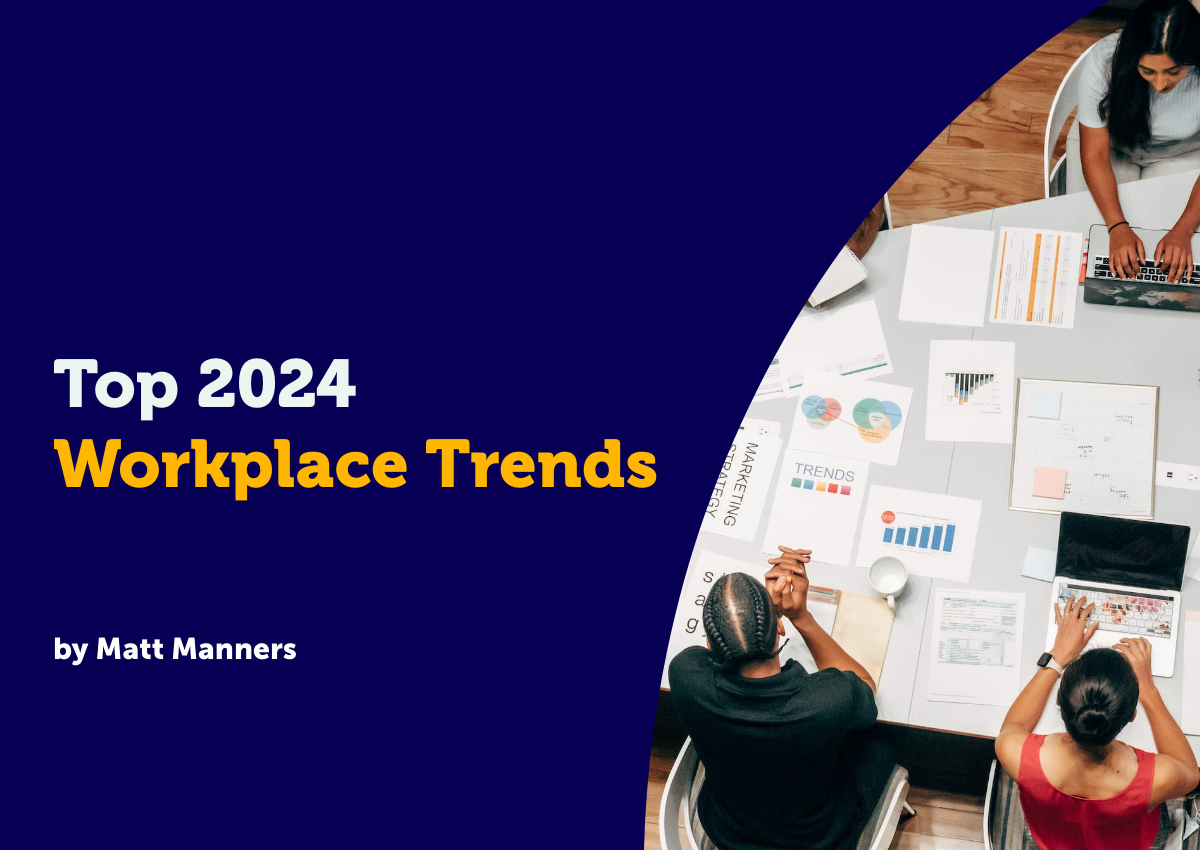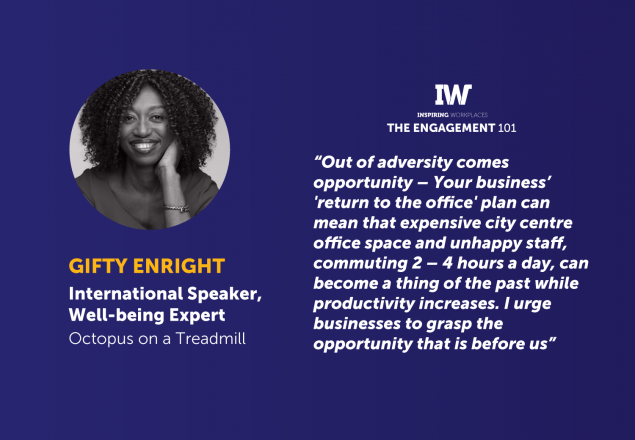
11th January 2024
Top trends affecting workplace in 2024 and beyond

As we enter 2024 and with six weeks until the Top Inspiring Workplaces global deadline, the world of work is undergoing significant transformations, driven by various trends that impact both organisations and employees. To help you and your organisation stay informed to adapt and thrive in the evolving work landscape, we’ve created a useful summary of the three insightful articles about workplace trends that will be impacting organisations in 2024 and beyond.
Gartner’s annual list of future work trends provides insights to navigate workplace transformation effectively. These trends are categorized into four themes: shifting Employee Value Proposition (EVP), new manager necessities, collapsing career assumptions, and AI reshaping work.
Similarly, another article published by the Association for Talent Development discusses key workplace trends affecting talent development, including technology with a focus on data, analytics, and upskilling; hybrid work arrangements; the impact of rising cost of living; and change fatigue.
Gallup identified six workplace trends that leaders should watch in 2024, including the evolving relationship between employers and employees, with trends around managing work stress, improving trust in leadership, and the challenges and opportunities posed by the hybrid work culture.
Managing these challenges and opportunities, along with putting your people first in the process, will be a deciding factor for ensuring that you attract and retain the best talent.
Key trends from 9 Future of Work Trends for 2024
Written by Jordan Turner, based on the research by Emily Rose McRae, Gartner Senior Director Analyst, published by Gartner
Theme 1: Shifting EVP (Employee Value Proposition):
- The cost of work crisis is causing tension as employers mandate remote employees to return to the office.
- Four-day workweeks are gaining popularity as organizations consider condensed schedules.
- Climate change protection is emerging as a sought-after employee benefit.
Theme 2: New Manager Necessities:
- Employee conflict resolution skills are becoming essential for managers.
- Diversity, Equity, and Inclusion (DEI) efforts are evolving from a standalone initiative to embedded practices throughout organizations.
Theme 3: The Collapse of Career Assumptions:
- Skills are increasingly valued over traditional degrees in response to the tight labour market.
- Atypical career paths are becoming more common, challenging traditional talent management strategies.
Theme 4: AI Reshaping Work:
- Artificial Intelligence (AI) is creating new workforce opportunities and roles.
- GenAI experiments require careful management and risk assessment to avoid issues related to data governance, quality control, and employee judgment.
Key trends from Key Workplace Trends of 2024 Affecting Talent Development
Written by John Hackston, and published in the Association for Talent Development
- Technology will continue to shape workplace practices, with a focus on data and analytics for training and development.
- The rise of artificial intelligence (AI) platforms for answering questions and content creation will require quality control.
- Hybrid and remote work arrangements will become more common, with an emphasis on accommodating employees’ preferences.
- The rising cost of living may impact retention and requires a focus on employee well-being.
- Managing change effectively will be a priority for organizations to combat change fatigue.
- Utilizing the “hidden workforce” by including underrepresented groups will become essential for talent acquisition and diversity.
- Diversity, Equity, and Inclusion (DEI) efforts will expand to consider various facets of diversity and promote well-being and mental health.
- Training and development programs must adapt to accommodate remote, hybrid, and nonremote workers.
Key trends from 6 Workplace Trends Leaders Should Watch in 2024
Written by Ben Wigert, and published by Gallup
- Worker stress remains high, and organizations need to balance it with rising employee engagement.
- Maintaining a sense of connection to the organization’s mission and purpose is crucial for employee loyalty and retention.
- Trust in organisational leadership is recovering but remains relatively low.
- Managers are experiencing increased stress and need more support, given their role’s importance in employee engagement.
- Hybrid work arrangements are likely to continue, and leaders should optimize their hybrid workplace.
- Successful implementation of hybrid work requires a well-thought-out strategy for communication, collaboration, and culture-building.
These trends provide insights into the evolving nature of work and the challenges and opportunities organisations will face in 2024 and beyond. Managing these challenges and opportunities, along with putting your people first in the process, will be a deciding factor for ensuring that you attract and retain the best talent.






